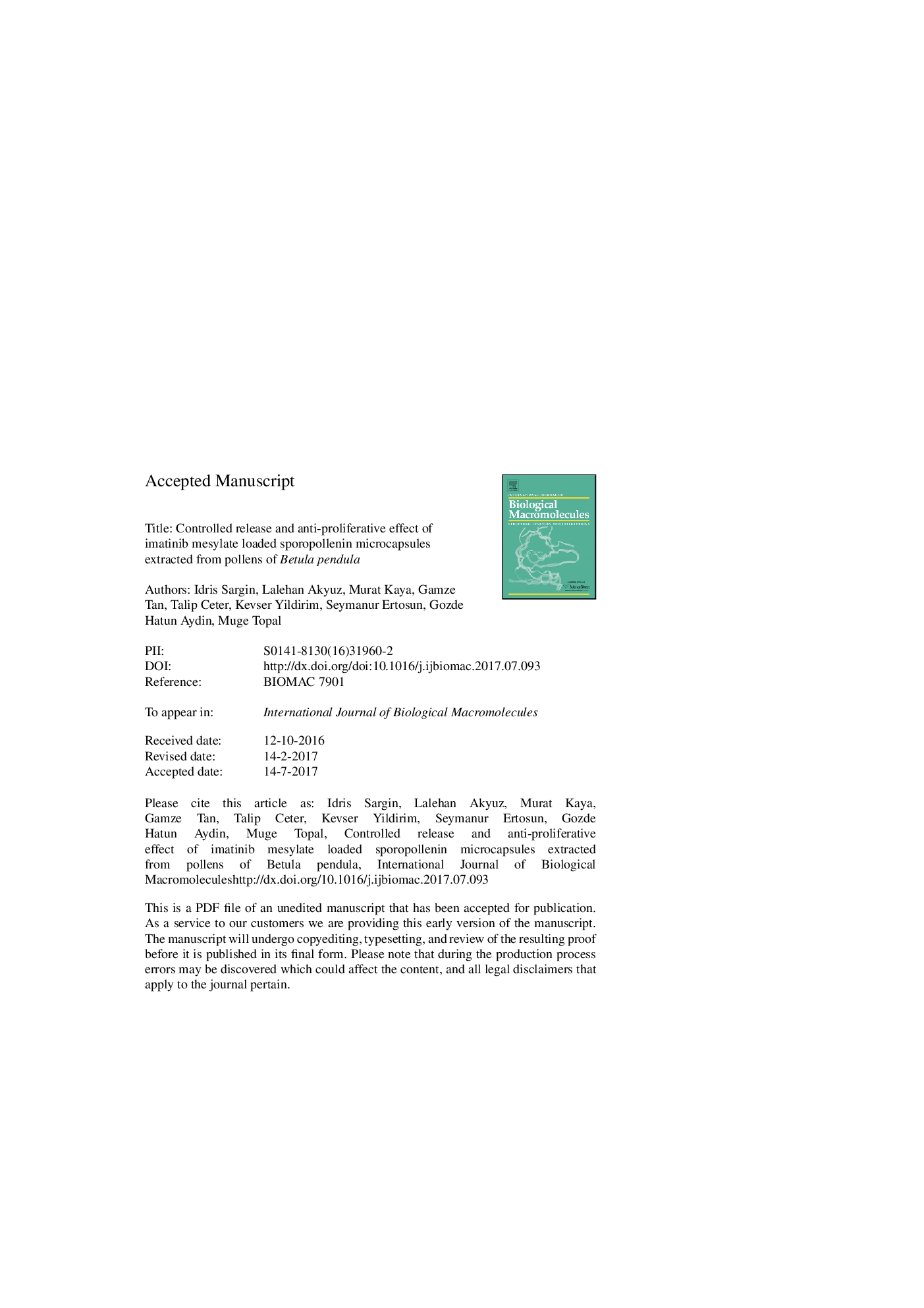| Article ID | Journal | Published Year | Pages | File Type |
|---|---|---|---|---|
| 8329596 | International Journal of Biological Macromolecules | 2017 | 24 Pages |
Abstract
Sporopollenin is a promising material for drug encapsulation due to its excellent properties; uniformity in size, non-toxicity, chemically and thermally resilient nature. Herein, morphologically intact sporopollenin microcapsules were extracted from Betula pendula pollens. Cancer therapeutic agent (imatinib mesylate) was loaded into the microcapsules. The encapsulation efficiency by passive loading technique was found to be 21.46%. Release behaviour of the drug from microcapsules was found to be biphasic, with an initial fast release followed by a slower rate of release. Imatinib mesylate release from the drug itself (control) was faster than from imatinib mesylate-loaded sporopollenin microcapsules. The release profiles for both free and entrapped drug samples were significantly slower and more controlled in PBS buffer (pH 7.4) than in HCl (pH 1.2) buffer. Cumulative drug release from IM-MES-loaded sporopollenin microcapsules was found to be 65% within 24Â h for PBS, whereas release from the control was completed within 1Â h. Also, a complete dissolution of control in HCl buffer was observed within first 30Â min. MTT assay revealed that drug-loaded microcapsules were effective on WiDr human colon carcinoma cell line. B. pendula sporopollenin can be suggested as an effective carrier for oral delivery of imatinib mesylate.
Related Topics
Life Sciences
Biochemistry, Genetics and Molecular Biology
Biochemistry
Authors
Idris Sargin, Lalehan Akyuz, Murat Kaya, Gamze Tan, Talip Ceter, Kevser Yildirim, Seymanur Ertosun, Gozde Hatun Aydin, Muge Topal,
